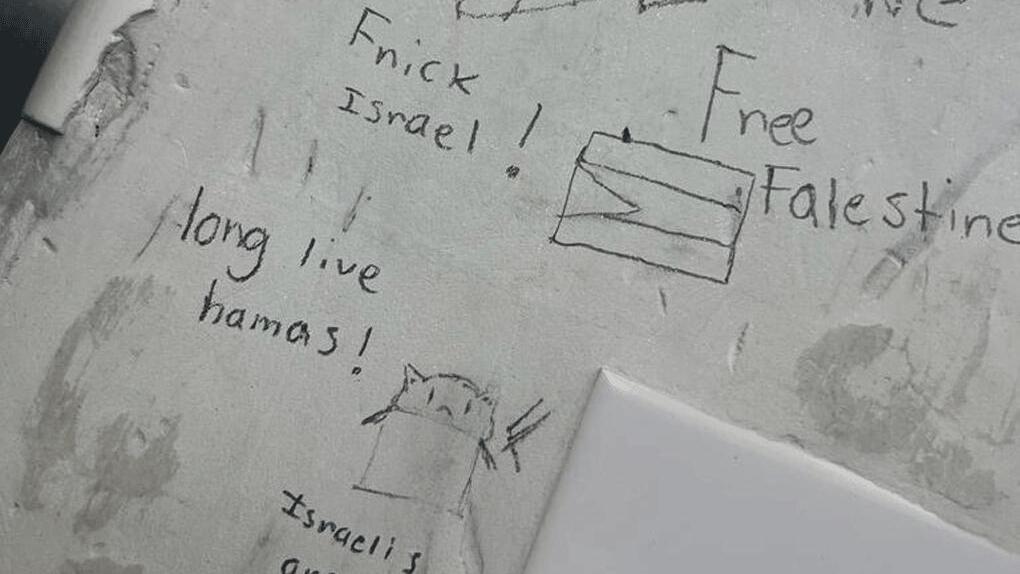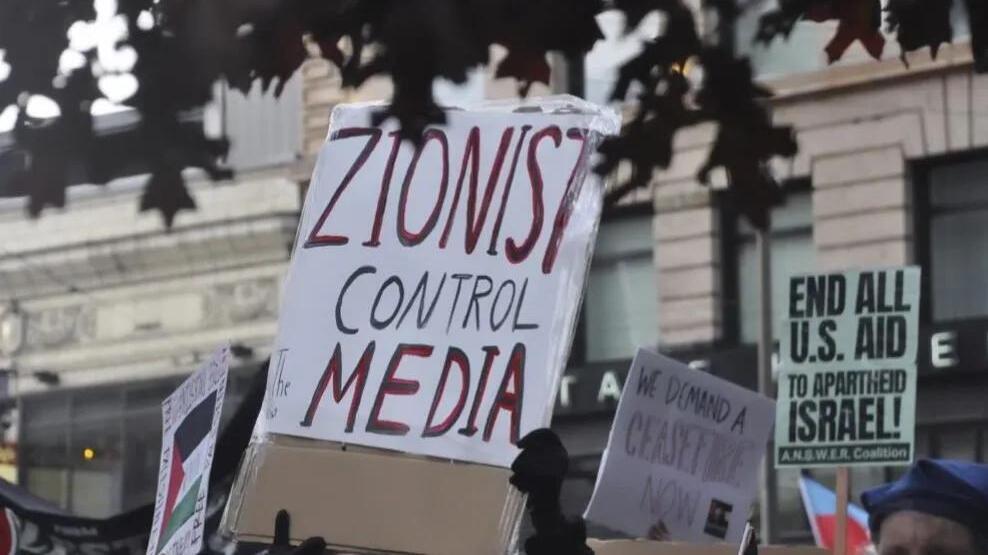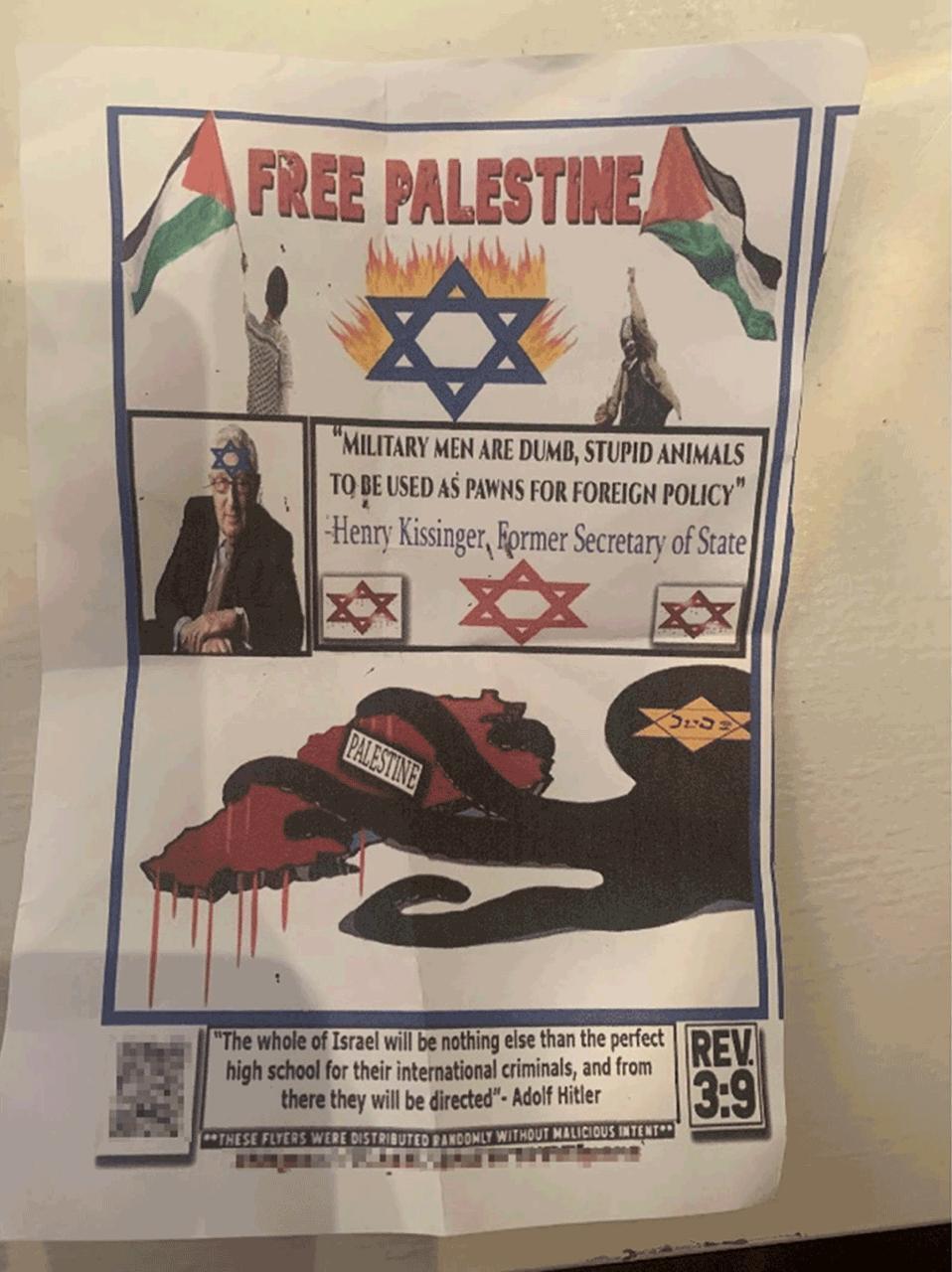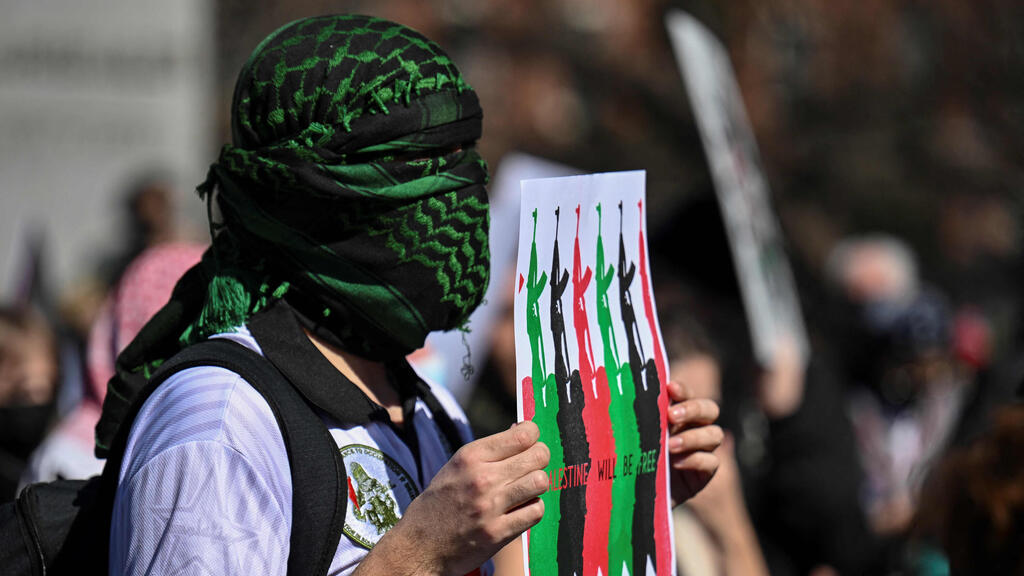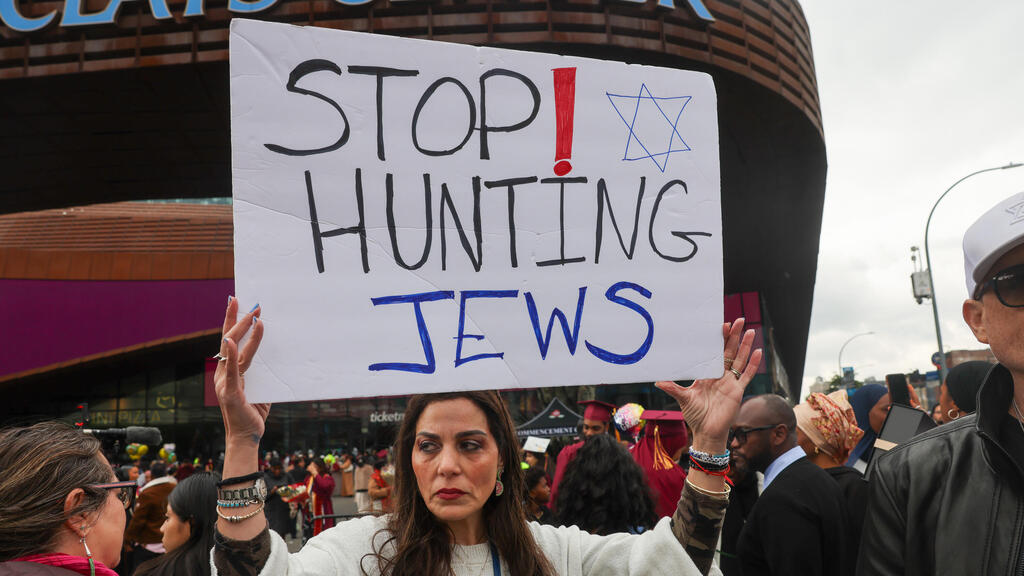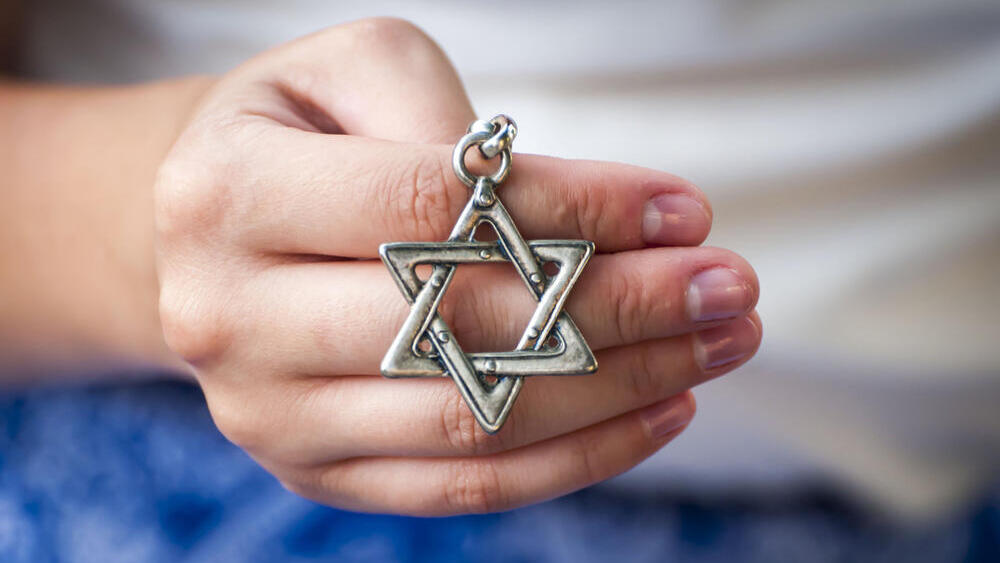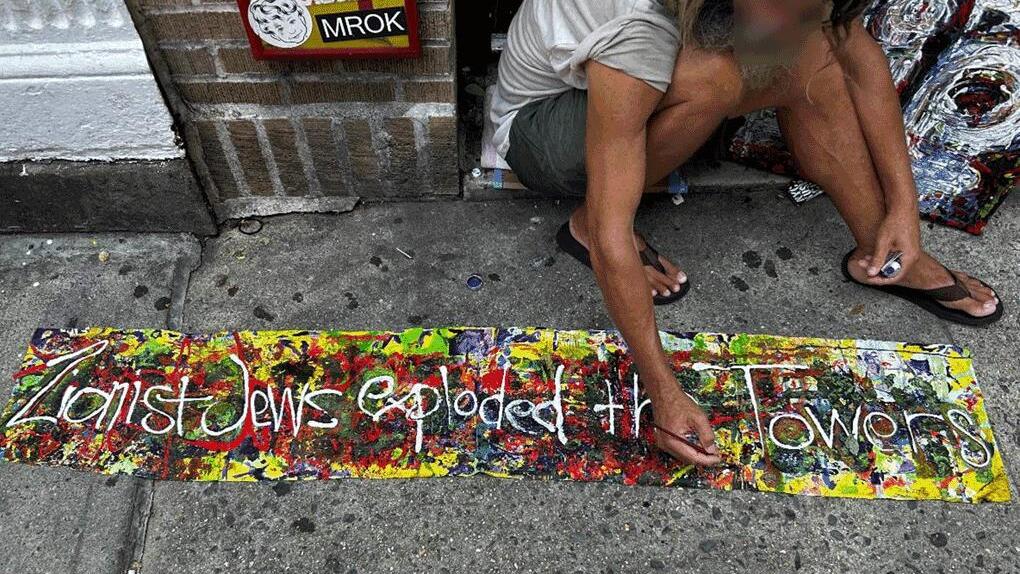In a music class at a prestigious middle school in Chicago, an eighth-grader played notes from a Nazi march. In California, a literature teacher told an entire classroom, “All Israelis are killing Gazan children and women.”
At a New York arts school, swastikas were carved into bathroom stalls and graffiti reading “From the river to the sea” was scrawled across the walls. On Holocaust Remembrance Day, the school’s history faculty held a lesson arguing that the Nazi swastika “isn’t only a hateful symbol.
These aren’t isolated incidents, according to dozens of parents of Jewish children aged 5 to 18 enrolled in elite private schools across the United States. In a new report by the Anti-Defamation League (ADL), parents described a troubling surge in antisemitism in educational settings they had turned to for values, academic excellence and individual attention—often at a steep price.
Annual tuition at many private schools exceeds $50,000, not including additional fees and so-called “voluntary” donations. For many Jewish families, that investment has come with a return of fear, exclusion and isolation since October 7, 2023.
The ADL report includes stories of classrooms where “Zionism is portrayed as racism,” textbooks citing extremist anti-Israel sources, students calling Jewish classmates “murderers,” and even an 11-year-old who told a peer, “They’re going to put you back in the oven.” The student later claimed he was “joking”—and the school took no disciplinary action.
In Washington D.C. suburbs, parents described 6- and 7-year-old children being called “kikes” on playgrounds. One Maryland mother said that after the October 7 massacre, students chased her daughter through the hallways, recording her with their phones and screaming, “You’re genocidal, your people are genocidal.”
A broader trend, not just college campuses
While recent public attention has focused on antisemitism at U.S. universities, the report reveals a quieter but widespread problem in private K–12 schools. More than 45% of Jewish parents surveyed reported that their children had experienced antisemitic incidents since October 7. The report, based on focus groups with 369 parents from 21 states, focuses on non-Jewish, non-public schools—many of which are independent and considered highly prestigious.
Parents described classrooms with swastikas etched into desks, bathrooms marked with “From the river to the sea, Palestine will be free,” and students echoing anti-Israel slogans in hallways. These incidents were reported in cities like New York, Los Angeles, San Francisco, Chicago and the D.C. metro area.
In many cases, the antisemitism came not from students but from teachers or curriculum materials approved by school leadership. One California mother said her 14-year-old Israeli daughter was in class when the teacher declared, out of nowhere and without context, “All Israelis are killing Gazan children and women.” The statement was made in front of the entire class. “That was the moment my daughter realized how alone she really was,” the mother said.
In another case, a 15-year-old Israeli girl was removed from a classroom discussion on the Israeli-Palestinian conflict by a teacher who told her, “You probably don’t want to be in this room right now.” The mother said the act effectively marked her daughter as an outsider. “It was one of the most painful moments for her this year.”
One parent said that after October 7, students began asking Jewish classmates if they “supported the slaughter in Gaza.” A 13-year-old boy reportedly came home from school saying, “They’re asking me if we support this and if I’m Israeli, then I guess the answer is yes. ” The teacher didn’t intervene and allowed the conversation to continue as part of a so-called “open” classroom discussion.
Another California parent described a beloved veteran teacher who showed a Turkish government video explaining Zionism—but failed to clarify that the content was highly politicized.
The video painted Israel in an overwhelmingly negative light and was shown without critique or context. “I don't believe this person intended to be antisemitic. What it brought up for me is…where is the content coming from?” the parent wondered.
One New York mother said that on Holocaust Remembrance Day, a middle school history class was devoted to explaining that the “swastika isn't only a hateful symbol.” Teachers intended to teach about the symbol’s ancient roots in Eastern religions like Hinduism, Buddhism and Jainism, where it represents good luck or divinity. But parents said the timing and lack of clarity blurred the symbol’s current meaning for Jewish students.
Many parents said their complaints to school administrators were met with dismissal or framed as isolated incidents. A California father said, “I had continually asked the head of school... ‘Has anyone else voiced these concerns?’ and he said ‘No,’ but we later found out many people had raised the same issues.”
According to the ADL report, 34.3% of parents aware of antisemitic incidents described their school’s response as “inadequate” or “somewhat adequate.” Another 21.3% said they never reported the events — either out of fear of retaliation or lack of trust.
One California parent said he organized a group of about 20 Jewish students to advocate for Israel, but every one of them asked to remain anonymous due to fear of reprisals from teachers or administrators. “That fear has created a kind of culture of silence,” he said.
Get the Ynetnews app on your smartphone: Google Play: https://bit.ly/4eJ37pE | Apple App Store: https://bit.ly/3ZL7iNv
Jews left out
Another recurring finding across the focus groups is the exclusion of Jewish identity from school curricula, particularly in DEI (diversity, equity, inclusion) programs. Many parents said Jews are left out of discussions about minority groups and instead portrayed as white and privileged—seen as needing neither protection nor representation.
Several parents complained that educational programs and events widely commemorate other minority groups—such as LGBTQ+ rights days, Indigenous Peoples' Day or Black Lives Matter—while antisemitism is entirely absent. There’s no mention, they said, of Jewish remembrance days such as Holocaust Memorial Day or Yom Kippur.
One New York mother shared that in a conversation with her school’s DEI head, she explained that for her, Judaism is both an ethnic and a religious identity. The response: “When you enter a room and when your son enters a room you are white identified and you are white.”
In another case in New York, a teacher told a Jewish mother, “I just don’t get why you’re so offended. Zionism is just a political opinion.” The report noted such reactions aren’t rare and that many progressive-leaning schools tend to treat Zionism strictly as a political concept.
One mother described how her 12-year-old son asked during a health science class why Jews weren’t included in the list of minority groups more prone to mental health issues. A classmate responded, “Obviously, because Jews don't suffer from that.” The teacher said nothing.
At a spoken word performance at an arts school, one student read a poem that included anti-Israel and anti-Zionist lines. The school administration refused to intervene, citing freedom of expression. Parents felt the event “flew under the radar” because it avoided overtly racist or extreme language, but it still damaged Jewish students’ sense of safety.
Parents also raised concerns about teachers attending conferences hosted by umbrella organizations where explicitly anti-Israel rhetoric was voiced. For example, at the National Association of Independent Schools (NAIS) conference in December 2024, antisemitic remarks were made, including delegitimization of Israel and comparisons to Nazism—without any objections from school administrators. Parents in New York demanded an apology from the school for participating in the event but were met with silence.
In another incident from a Northern California focus group, a teacher had posted on Instagram that “Zionism is white colonial supremacy.” Parents who saw the post demanded an inquiry, but the administration responded that “this doesn’t reflect the school’s official position”—and the post was never removed. “We’re funding an institution that gives a platform to anti-Jewish rhetoric and they’re telling us to just get used to it,” one parent said.
Parents also pointed to a complete lack of Jewish representation in course materials and required reading. They felt the consistent absence of Jewish characters contributed to alienation and a lack of empathy toward Jewish students.
Moreover, they said broad statements from schools like “we condemn all forms of hate” fall short when dealing with clear cases of antisemitism that require direct and specific condemnation.
As a result of this environment, some students have stopped displaying visible signs of Jewish identity. One parent shared that his son wears a Star of David at home but makes sure not to wear it to school. “He told me, ‘I’ll wear it at camp.’”
Rising enrollment in Jewish schools
In some cases, schools responded swiftly and decisively to antisemitic incidents. A Chicago parent described a student who brought sheet music from a Nazi march to music class—after searching for it online and printing copies for classmates.
The teacher intervened immediately and stopped it. In another case, in California, teachers distributed anti-Israel reading materials from Al Jazeera. After parents complained, the school declared the source inappropriate.
But according to the report’s authors, such responses are the exception. Many parents described feeling isolated, even hopeless. A California parent said he brought up concerns about antisemitism with a senior teacher, who replied, “We don’t have that here.”
A mother in Chicago said, “I'm the only person fighting. I'm very alone in the school fighting. There are not a lot of Jews. When people hear of antisemitic or anti-Israel things, they come tell me instead of reporting it themselves.”
During the group discussions, many parents said they were seriously considering transferring their children to Jewish day schools. “Our experience as Jews just makes it impossible to stay in the city’s high school,” said a Chicago mother.
A family in Missouri had already acted after several antisemitic incidents: “We left the school because they terrorize our children.” According to parents, schools seem open but in practice shut the door on Jewish families: “The law says we can enroll, but in reality, we’re not welcome.”
The report describes a gradual decline in Jewish student enrollment—a trend confirmed by other studies showing a sharp rise in enrollment at Jewish schools following October 2023, particularly among families leaving the general private school system.
Despite everything, the report highlighted one positive statistic: 64% of parents said their children feel “very comfortable” expressing their Jewish identity. But this is overshadowed by 860 documented antisemitic incidents in U.S. schools in 2024—9% of which took place in private institutions—and a 434% increase since 2020.
While the public school system has binding protocols for handling offensive content, private schools, according to the Anti-Defamation League, enjoy broad pedagogical autonomy and often fail to meet necessary standards of transparency and accountability. The report calls on the U.S. Department of Education to consider regulatory measures, including creating monitoring and training systems tailored for private institutions.
Without clear steps, the researchers warn, trends of quiet exclusion and Jewish family flight from the independent school system will accelerate—a process already underway and reminiscent of historic patterns of exclusion.



